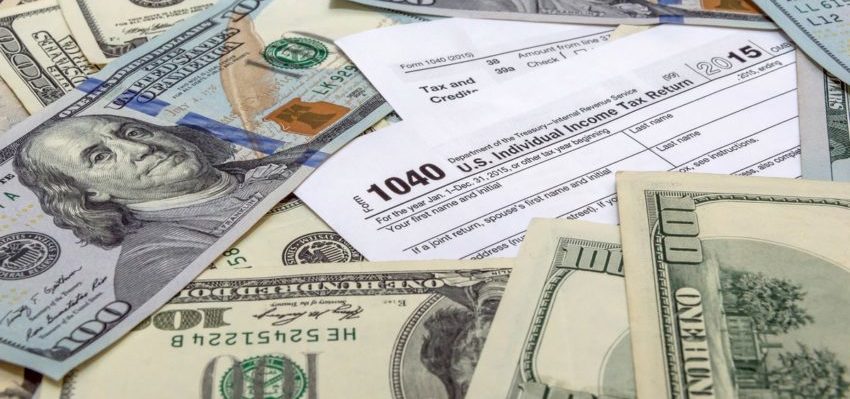 [bctt tweet=”Tucked into the provisions passed during the Legislature’s Extraordinary Session are two impactful income tax changes. #wiright #wipolitics ” username=”MacIverWisc”]
[bctt tweet=”Tucked into the provisions passed during the Legislature’s Extraordinary Session are two impactful income tax changes. #wiright #wipolitics ” username=”MacIverWisc”]
December 6, 2018
By Ola Lisowski
While much of the attention of this week’s Extraordinary Session centered around the powers of the Governor and Attorney General, two remarkably impactful proposals quietly passed through the Legislature.
Wisconsin taxpayers will soon see reductions to their individual income tax rates, thanks to the Legislature’s Extraordinary Session.
Senate Bill 883 (SB 883) was the only bill that made it through a party-line Senate vote before that body’s hours-long recess. The Assembly later passed the bill on a 57-27 vote. Included in the bill text are changes to tax law, alongside transportation policy changes.
Here’s a plain-language breakdown of what the tax changes would do.
Individual Income Tax Changes/Sales Taxation of Out-of-State Retailers
Under the proposal, the proceeds from the sales taxation of out-of-state retailers would be used to reduce state individual income tax rates.
This summer’s South Dakota v. Wayfair, Inc. decision in the United States Supreme Court ruled that states may collect sales and use tax on out-of-state, online retailers who sell products in Wisconsin. In 2013, Wisconsin passed a law requiring that any sales tax revenue collected from out-of-state retailers would automatically go toward lowering individual income tax rates, rather than going into the general fund.
This provision would set that transfer into law, now that the Wayfair decision has been passed down from the country’s highest court.
Speaking to MacIver News Service, Rep. Dale Kooyenga (R-Brookfield) said the bill would put “a belt and suspenders” on the previous 2013 law’s stipulations, directing how the process will go following the Wayfair decision.
The language specifies that the Department of Revenue would set new rates and submit them to the Governor, Legislative Audit Bureau, and Joint Finance Committee for review.
Kooyenga, a member of the Legislature’s Joint Finance Committee, has long worked on reducing the state’s tax burden. He said the bill will wait for tax collections to come in before rates are reduced, “in proportion to income taxes paid.”
Sen. Chris Kapenga (R-Delafield) said the provision “helps bring parity between in-state and out-of-state business while ensuring we don’t raise taxes on Wisconsinites.”
If signed by outgoing Gov. Scott Walker, the bill is expected to reduce state revenue by an estimated $60 million annually, beginning in 2019. That number has been revised in recent months as new estimates come in—one of the reasons this bill takes a full year to count actual tax collections before adjusting the individual income tax rates.
Taxation of Pass-Through Entities
Pass-through entities (S corporations, LLCs, and partnerships) are an increasingly popular form of business organization in Wisconsin and across the country. These types of businesses pay income taxes under individual income tax rates, rather than under the corporate business income tax.
“Once again, Republican lawmakers are delivering tax cuts and tax code simplifications for the people of the state of Wisconsin.” -Sen. Duey Stroebel
Under this proposal, pass-through entities could elect to file their income taxes under the 7.9 percent business corporate tax rate rather than the state’s individual income tax rate. This would likely raise the business’ tax burden at the state level, as the highest individual income tax rate is 7.65 percent.
However, under the federal Tax Cuts and Jobs Act, passed in December 2017, individual deductions are limited to $10,000. For that reason, businesses may benefit by instead filing under the corporate tax, as they could still utilize other federal credits to offset their overall tax burdens.
The provision “minimizes potential negative consequences that result from the federal tax bill on Wisconsin business owners,” Kapenga said.
The bill is likely to have a fiscal impact on the state, but according to the Legislative Fiscal Bureau, it’s uncertain at this time.
Speaking to MNS, Kooyenga said the bill would likely increase state revenue. “It’s actually going to lead to additional tax revenue in Wisconsin because the corporate taxes are higher than the individual income tax rates,” Kooyenga said, saying the bill will help small businesses in the state.
“These are dentists, these are professional services, practices, so it makes tremendous sense to make sure we’re fighting for small businesses by reacting and adjusting our tax code to the federal tax code,” Kooyenga said.
The provision received the vote of every Republican in the Senate, including that of Sen. Duey Stroebel (R-Cedarburg).
“Once again, Republican lawmakers are delivering tax cuts and tax code simplifications for the people of the state of Wisconsin,” Stroebel said. “Every dollar we keep in the pocket of taxpayers is a dollar that can help grow the economy, achieve dreams and promote prosperity and opportunity for all.”
Outgoing Gov. Scott Walker is expected to sign the bills soon.